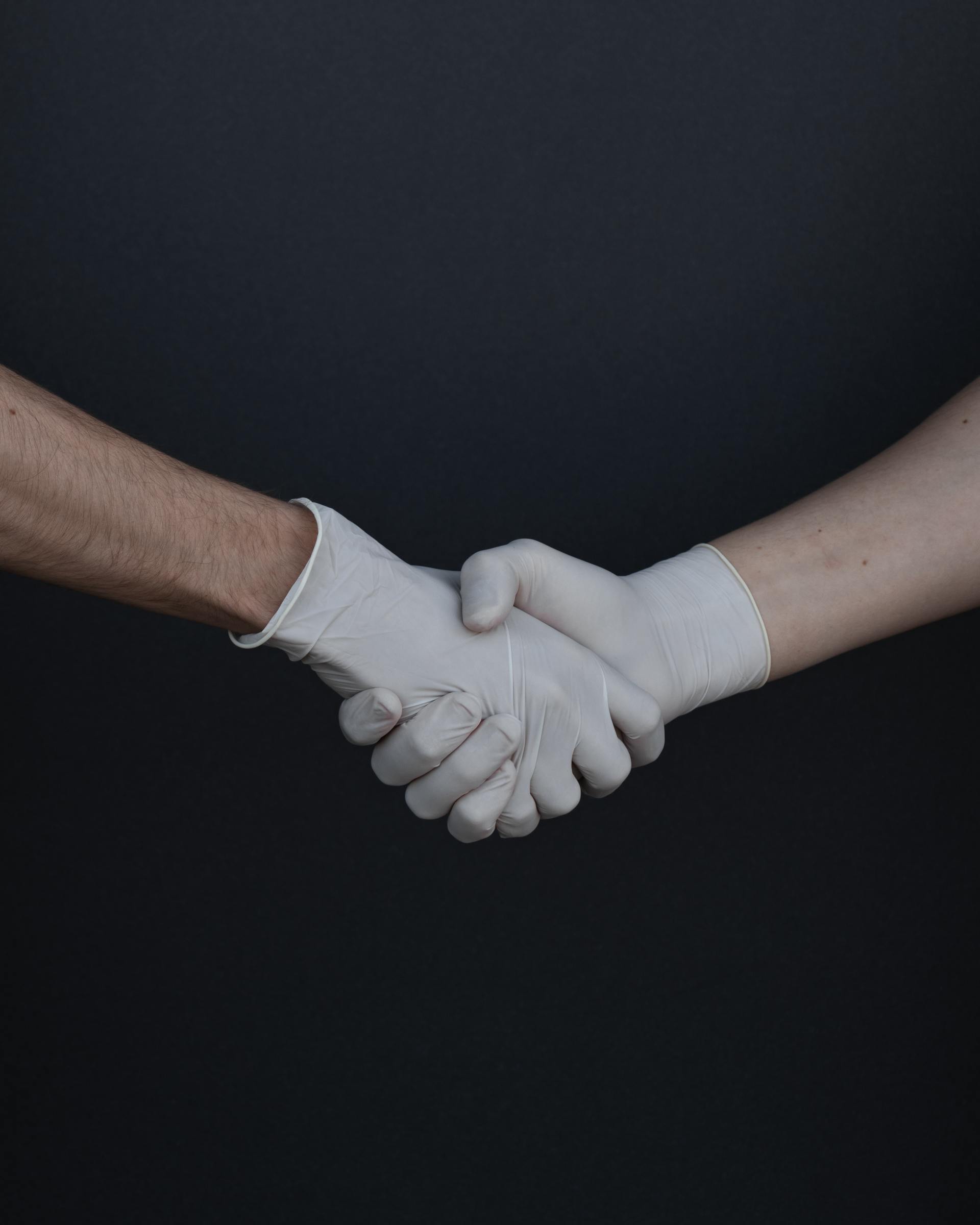The Community Instinct
What the Trinity tells us about our need for connection

What have you found hardest about this lockdown period? So many have suffered in so many ways but perhaps the most distressing aspect of the lockdown for many has been our separation from others; family, friends, neighbours and loved ones, even in their most desperate hours. And even as the lockdown restrictions begin to ease, the need to social distance still prevents us from the comfort of human touch, the much needed hug from a missed family member or friend.
It’s this suffering that has prompted such a public backlash against Dominic Cummings, the government advisor who devised the strategy for this separation but then broke his own rules. Defending his actions, Cummings (and Boris Johnson) spoke about the deeply held instinct to care for his family; an instinct that sent him 260 miles up the motorway from London to Durham, so that he, his wife and young child could be close to his parents and other relatives.
Whatever your views on the rights and wrongs of his actions, I am sure that most of us can recognize the instinct that drove him to take these steps - because buried deep inside of all of us is a heartfelt need to gravitate towards others, particularly in extremis. It’s as if the need to be in community is ingrained within our genetic make-up; that the need to be in relationship with others is part of our DNA and what it means to be human. None of which should surprise us.
Today is Trinity Sunday, the day in the church calendar when we remember that our God is, himself, community. The whole concept of the Trinity, the teaching that there is only one God but that he is made up of an eternal relationship between the Father, Son and Holy Spirit, is one of the most mysterious aspects of our faith. But the reality of this holy community is woven throughout the whole of scripture.
In Genesis’s poetic account of creation, God speaks about himself in the plural saying ‘‘Let u s make human kind in our image, according to our likeness’ (Gen 1:26). And in today’s Church of England lectionary reading, Isaiah paints a picture of God instructing and enlightening the Spirit of the Lord to do his creative work in the world asking:
Who has measured the waters in the hollow of his
hand
and marked off the heavens with a
span,
enclosed the dust of the earth
in a measure,
and weighed the mountains in scales
and the hills in a balance?
Who has directed the spirit of
the Lord,
or as his counselor has instructed
him?
Whom did he consult for his enlightenment,
and who taught him the path of
justice?
Who taught him knowledge and
showed him the way of understanding?’ Isa.40:12-14)
And today’s New Testament reading from Matthew, records Jesus making the now familiar reference to the identities of the three persons of the Godhead, as he told his disciples to go and ‘ make disciples of all nations, baptizing them in the name of the Father, and of the Son and of the of the Holy Spirit ’ (Matt. 28:19)
So if our God is community - his very nature being relationship - and if we are made his image, then what does that mean for us?
The truth is that we too are made to be in relationship. As humans these relationships aren’t something we carry within ourselves, but they are part of what it means to alive in the world. We are hard wired to make connection to, and live in relationship, with others. And when our time upon this earth is passed, it is the quality of those relationships that we will be remembered for; how we touched and enriched other’s lives.
During this pandemic we have had to deny this basic instinct in ourselves in order to keep ourselves and others safe. But even at the peak of the crisis, when we were all called to stay at home, to protect the NHS and save lives, we have seen people reaching out from their self-isolation in a myriad of different ways; from local community support groups to the Thursday night hand clap for the NHS, from live streamed church to Zoom prayer sessions.
Although this experience has been very hard, what it teaches us is that just as the Trinity is made up of different persons but is also one, so too are we both individual but part of one body that is Christ Jesus. That, in Jesus, we are not only deeply connected to each other but are part of the eternal exchange of love that is our Trinitarian God. That while we may face physical isolation, we do not have to succumb to the isolation of the soul, for as Jesus told his disciples ‘I am with you always, to the end of the age.’
Kate Nicholas’s best-selling memoir Sea Changed (shortlisted as Christian Biography of the Year 2017) and her latest book Sea Changed: A Companion Guide – Living a Transformed Life are available at Christian bookstores and online at eden.co.uk, kooroong.com and Amazon worldwide. Her TV series Living a Transformed Life can be viewed on demand on www.tbnuk.org or at www.katenicholas.co.uk Kate’s next book Soul’s Scribe: Connecting your Story and God’s Narrative will now be available in Spring 2021.
Photo by Branimir Balogović on Unsplash
